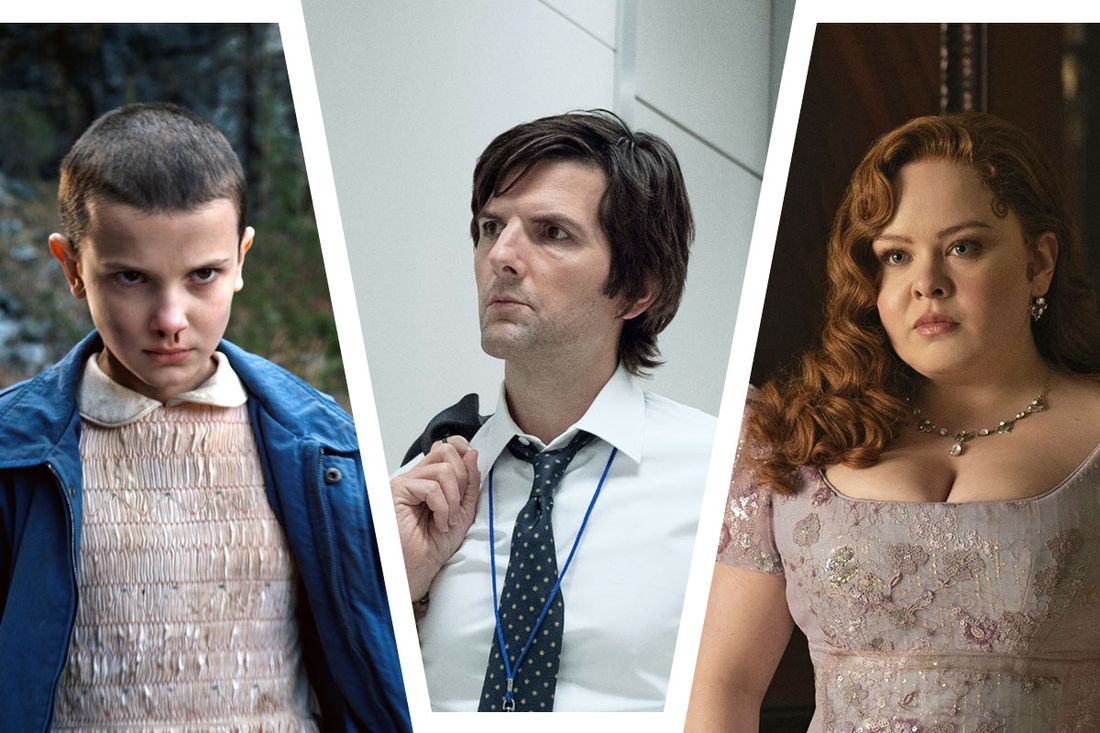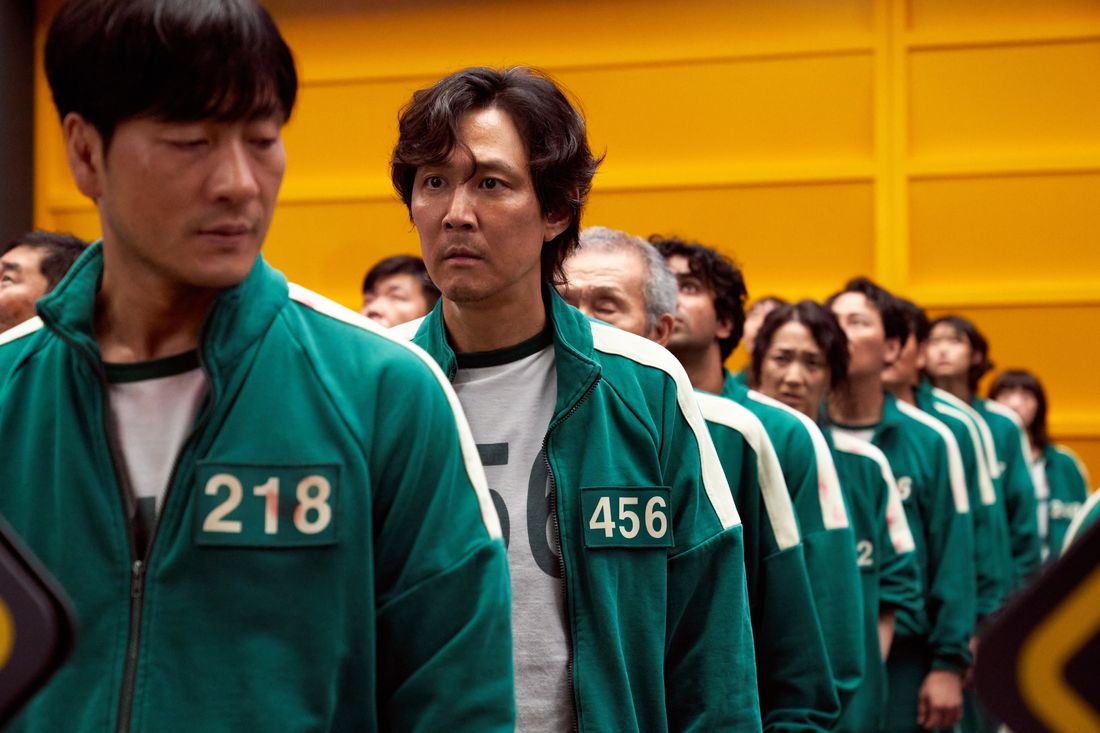
As a long-time television enthusiast who has seen the evolution of TV from black and white sets to high-definition streaming platforms, I must say that the current state of delayed releases and slow decision-making is a far cry from the golden age of network television.
Have you found yourself struggling to recall the details of the last season of popular shows like “Stranger Things” on Netflix, “Euphoria” on HBO, or “Severance” on Apple TV+? It’s been a while since these shows have released new episodes – we’re talking about early 2022, a time when President Joe Biden had just started his first year in office and political analyst Nate Silver was discussing Eric Adams as a potential future presidential candidate. This is the reality of watching TV during the streaming era: The wait between seasons can sometimes span over a president’s term.
The traditional pattern of television viewing, where we could eagerly anticipate our favorite shows every few months, has significantly changed over time. In the past, when broadcasters held sway, there was usually a gap of just four to five months before new episodes were released (for instance, ABC’s “Abbott Elementary” returned for its fourth season last night after wrapping up its third in May). However, the rise of streaming platforms has altered this norm, and one of the consequences is that the production and release schedule of popular TV shows has become less predictable.
Viewers often grow attached to TV shows, and prolonged absences between seasons can cause them to lose interest or forget what drew them in initially. As John Wells, a veteran producer of shows like ER and The West Wing, explains, consistency is key for maintaining an audience, even for shows that start strong in their first year. This is because television offers a level of familiarity not found in movies; viewers spend extended periods at home with the characters week after week and year after year. Therefore, it’s beneficial to have shows return as quickly from season to season as possible, ensuring regularity that keeps fans engaged.
If a shorter gap between seasons is advantageous, one might wonder why numerous successful series have struggled to release episodes on schedule recently. Industry insiders suggest that there are three significant factors contributing to the prolonged delays, often referred to as “The Big Wait.
1.
TV shows have turned into spectacles.

Following the success of shows like “Game of Thrones” and “Stranger Things,” which showcased the high rating potential of cinematic TV, all platforms have been rushing to produce more blockbuster-style programming. This includes shows such as “House of the Dragon,” “The Boys,” and “Peacemaker.” According to one streaming executive, these shows are bigger in scale, with complex special effects that take a significant amount of time to create.
2.
Movie people don’t know how to make shows quickly.

During the streaming wars, the boundary between film and television talent has vanished entirely. Streaming platforms actively recruit well-known figures to draw attention to their projects, while the decline of mid-budget cinema has pushed less famous movie veterans towards TV. As one experienced television writer puts it, “The heart of the film industry – a sizable middle ground – has disappeared, and many producers, directors, and writers who were working there have moved into television.” However, they come from a system where projects took longer to develop, so their approach to TV production may be slower compared to what’s typical in the small screen.
Although it would be delightful to have Ben Stiller for ‘Severance’ or Rian Johnson and Natasha Lyonne create ‘Poker Face’, these film veterans may not be adept at producing episodic TV quickly due to the different pacing and collaborative nature compared to movie production. A streaming executive cautions, “Creating eight hours of television is quite distinct from making a two-hour movie.” Generally speaking, filmmakers might not be as agile in their scriptwriting process, leading to occasional confusion over who holds the reins, either the writer or the director. This ambiguity can potentially slow down production and widen gaps between seasons.
Despite their innate ability for television writing, the decay of the broadcast system has left a generation without the training in producing 22 episodes. This means they struggle to write multiple episodes of a half-hour show, as they lack the necessary experience in quickly and consistently writing large amounts. The streaming executives are to blame: They could have preserved the episodic TV factory, but chose instead to follow Netflix’s lead off the short-season model, preferring to introduce new, alluring shows every few weeks rather than nurturing long-term connections with a handful of exceptional series.
3.
The streaming production model doesn’t encourage timeliness.

During John Wells’ tenure at NBC, where he produced weekly episodes of ER and The West Wing, there was typically a gap of four to five weeks between wrapping up an episode and its airing. However, in the streaming era, it could take as long as seven or eight months, or even a year, before an episode becomes available. This delay is due to several factors, including the increased time needed for complex special effects on many shows, and the need to adapt content to over 120 different territories, involving dubbing and subtitles.
After a new season of a show launches, online platforms might delay in deciding if it’s worthwhile to produce another season. As a former streaming development executive explains, while viewership numbers are significant, other key metrics such as completion rates of episodes and entire seasons, attracting new subscribers, and attracting high-income viewers are equally crucial. These figures are then compared to the show’s overall production costs before streaming executives can begin analyzing the data to justify ordering another season. The complexity in this process is increased because online platforms don’t have fixed deadlines for filling time slots like traditional broadcast networks do. Since there aren’t industry-wide decision points, renewal decisions can take as long as the contracts allow.
Can This Be Fixed?

Following nearly a decade of expanding intervals between television seasons, there are indications that this trend could reverse soon. The popularity of traditional favorites like “Suits” and “Prison Break” has sparked renewed interest in TV series that can be produced more swiftly, while the post-Golden Age of Television has fostered a new era of financial prudence. According to Wells, streaming services are attempting to speed up the release of these shows, particularly those that do not only provide them for binge-watching purposes.
The seasoned producer is presently managing a medical procedural series titled “The Pitt” for Max, scheduled to air 15 episodes weekly starting in 2025. If renewed, additional episodes could follow within a year. As Wells explains, “Our aim is to create a top-notch show that once upon a time would’ve been produced by one of the big networks, but for streaming instead. We hope to release it annually, enabling viewers to bond with these characters and eagerly anticipate our return.
Currently, Carlton Cuse (known for shows like Lost and Jack Ryan) is busy at Netflix developing a medical drama titled Pulse. Although Netflix hasn’t given any indication yet about producing more than their typical 8-10 episodes per season for this series, its procedural format and notable creators suggest that if renewed, Pulse could become an annual addition to Netflix shows such as The Diplomat and The Lincoln Lawyer. This trend of releasing new seasons annually is relatively recent, but producer Jonathan E. Steinberg (Wells) is eager for a return to more regular television scheduling. “We are all capable of sticking to ongoing schedules,” he says. “Television has been around for 70 years, and we just need to get back into the habit of it. I believe that the audience will appreciate it if we do.
Read More
- Smash or Pass: Analyzing the Hades Character Tier List Fun
- Hades Tier List: Fans Weigh In on the Best Characters and Their Unconventional Love Lives
- Why Final Fantasy Fans Crave the Return of Overworlds: A Dive into Nostalgia
- Sim Racing Setup Showcase: Community Reactions and Insights
- Understanding Movement Speed in Valorant: Knife vs. Abilities
- Why Destiny 2 Players Find the Pale Heart Lost Sectors Unenjoyable: A Deep Dive
- How to Handle Smurfs in Valorant: A Guide from the Community
- Valorant Survey Insights: What Players Really Think
- Honkai: Star Rail’s Comeback: The Cactus Returns and Fans Rejoice
- FutureNet Co-Founder Roman Ziemian Arrested in Montenegro Over $21M Theft
2024-10-10 14:54